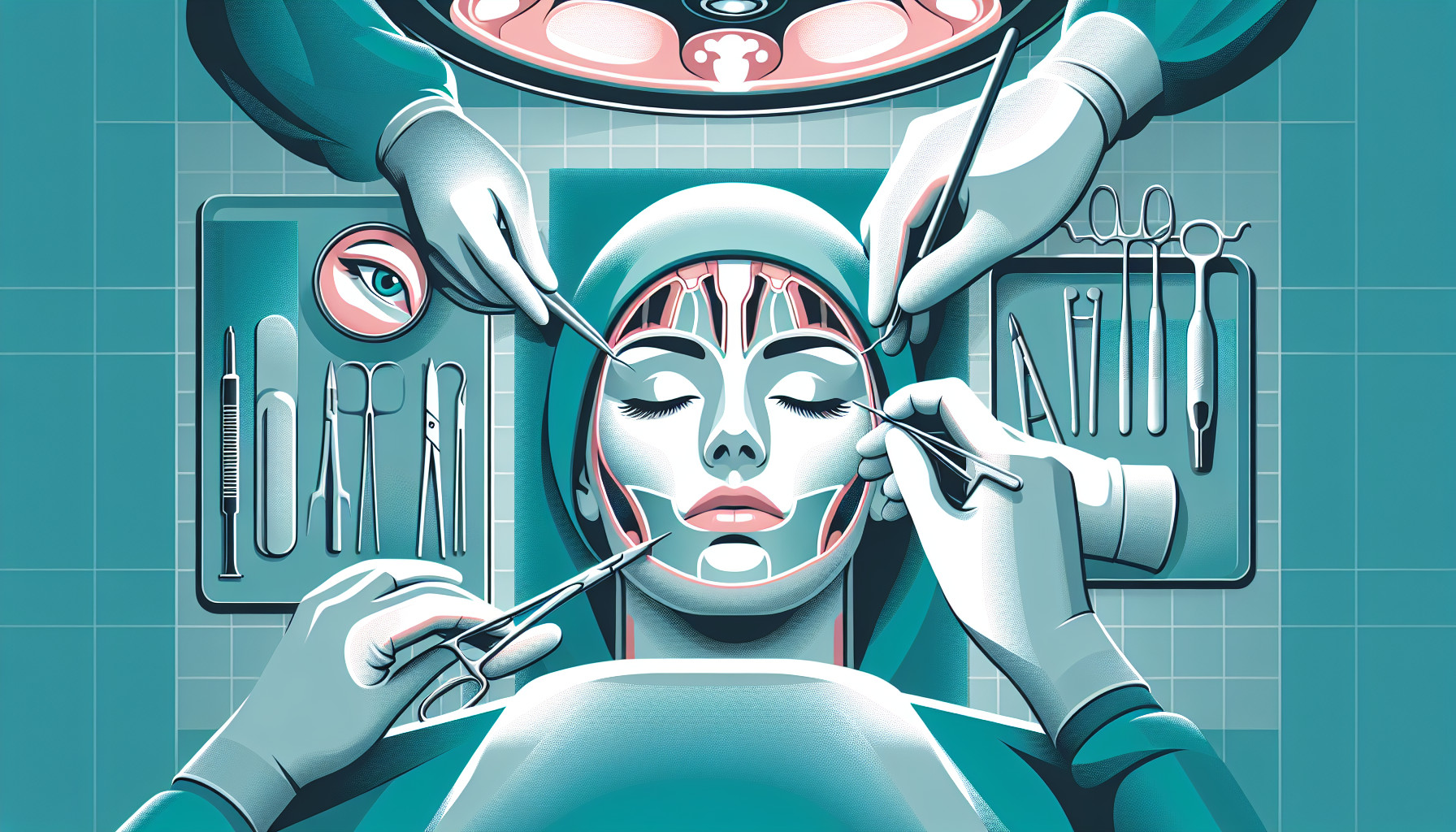Our Summary
This research paper looks at the risks of surgery-related complications for patients with autoimmune diseases. In such diseases, the body’s immune system mistakenly attacks its own cells, considering them as foreign invaders. This can lead to problems after surgeries, as the immune system might cause damage to the tissues.
The study looked at 886 patients who had undergone a specific type of facial surgery called orthognathic surgery, and found 22 patients with 12 different types of autoimmune diseases. They then closely followed the recovery of these 12 patients for at least two years after their surgeries.
The surgeries were all performed by the same team, and involved various procedures to correct issues with the jaw and chin. The researchers recorded any problems that arose after the surgery, including issues with breathing or blood, wound infection, nerve-related issues, jaw joint complications, and relapse.
They found that only two patients had no issues after the surgery. The others experienced a range of complications, including delayed recovery from nerve-related issues, infection, jaw joint complications, and other problems.
These findings suggest that people with autoimmune diseases who undergo this type of facial surgery are more likely to experience complications. This highlights the need for careful planning and risk assessment before deciding on surgery for these patients. The researchers also stress the importance of closely monitoring patients after surgery to quickly spot and manage any complications.
FAQs
- What is orthognathic surgery and why may it pose risks to patients with autoimmune diseases?
- What complications were most commonly observed in patients with autoimmune diseases after orthognathic surgery, according to the research?
- What recommendations do researchers make for handling patients with autoimmune diseases who are considering orthognathic surgery?
Doctor’s Tip
A helpful tip a doctor might tell a patient about orthognathic surgery is to disclose any autoimmune diseases or other underlying health conditions they have before the surgery. This information can help the medical team assess the risks and potential complications that may arise during and after the procedure. It is important for patients with autoimmune diseases to work closely with their healthcare providers to develop a comprehensive plan for surgery and post-operative care to minimize the chances of complications and ensure a successful recovery.
Suitable For
Patients with conditions such as rheumatoid arthritis, systemic lupus erythematosus, Sjögren’s syndrome, and other autoimmune diseases are typically recommended orthognathic surgery with caution due to the increased risk of complications. These patients may have weakened immune systems and increased inflammation, which can impact the healing process and increase the likelihood of post-operative complications.
Orthognathic surgery is often recommended for patients with severe malocclusion, jaw deformities, or breathing difficulties due to skeletal issues. However, patients with autoimmune diseases may need to undergo additional pre-operative assessments and have a personalized treatment plan to minimize the risk of complications.
It is important for healthcare providers to carefully evaluate the risks and benefits of orthognathic surgery for patients with autoimmune diseases and closely monitor them during the recovery period to ensure optimal outcomes. Collaboration between oral and maxillofacial surgeons, rheumatologists, and other healthcare providers is essential to provide comprehensive care for these complex patients.
Timeline
Before orthognathic surgery:
- Consultation with a maxillofacial surgeon to discuss the need for surgery and potential risks and benefits.
- Preliminary orthodontic treatment to align the teeth and prepare for surgery.
- Pre-surgical evaluation and planning, including imaging tests and physical exams.
- Pre-operative instructions and preparation for the surgery, including fasting and medication adjustments.
After orthognathic surgery:
- Immediate recovery period in the hospital or surgical center, closely monitored by medical staff.
- Post-operative care instructions, including pain management, diet restrictions, and oral hygiene.
- Follow-up appointments with the surgeon to monitor healing progress and address any concerns.
- Orthodontic treatment to further align the teeth and stabilize the bite.
- Long-term follow-up to assess the success of the surgery and address any issues that may arise in the future.
What to Ask Your Doctor
What specific autoimmune diseases are considered high risk for complications during orthognathic surgery?
How will my autoimmune disease impact the healing process after surgery?
Are there any specific precautions or additional tests that should be taken before scheduling surgery?
What steps will be taken to minimize the risk of complications during and after surgery?
How will my autoimmune disease be managed during and after surgery to prevent any flare-ups or complications?
What is the success rate of orthognathic surgery for patients with autoimmune diseases?
How long is the recovery process expected to take for someone with an autoimmune disease undergoing orthognathic surgery?
Are there any alternative treatment options that may be safer for someone with an autoimmune disease?
How often will I need to follow up with my doctor after surgery to monitor for any potential complications?
Can you provide me with information on any similar cases you have treated in the past to give me a better understanding of what to expect?
Reference
Authors: Li J, Shujaat S, Shaheen E, Politis C, Jacobs R. Journal: J Plast Reconstr Aesthet Surg. 2023 Sep;84:413-421. doi: 10.1016/j.bjps.2023.06.017. Epub 2023 Jun 9. PMID: 37406372
